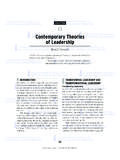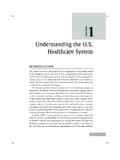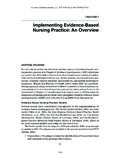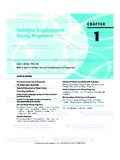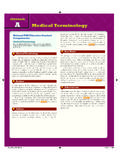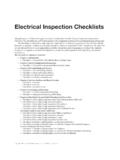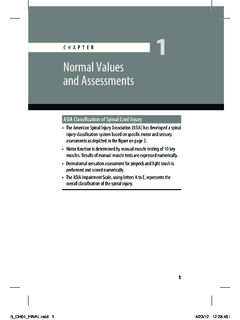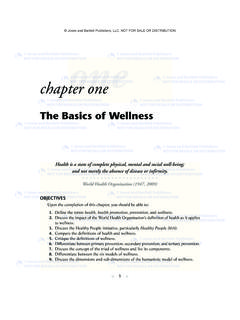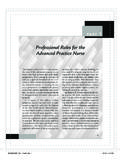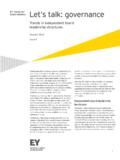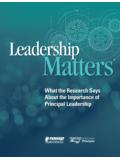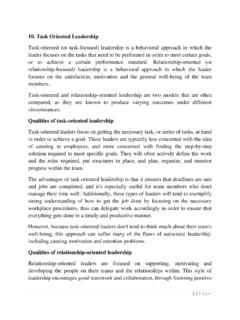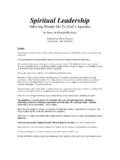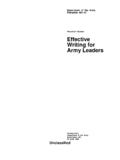Transcription of Section I Pharmacy Management and Leadership
1 Pharmacy Management and Leadership Chapter 1 Management Essentials for Pharmacists .. 3 Chapter 2 Leadership Essentials for Pharmacists .. 23 Chapter 3 Communicating Effectively in the Workplace .. 38 Chapter 4 Managing Conflict and Building Consensus .. 53 Chapter 5 Negotiation Techniques .. 62 Chapter 6 Leading and Managing Change .. 73 Section 19/13/12 11:49 29/13/12 11:49 AMLearning ObjectivesAfter completing the chapter, the reader will be able to: 1. Define Management and list some Management opportunities for pharmacists. 2. Cite factors that motivate Pharmacy employees. 3. Describe techniques for providing effective feedback. 4. Differentiate the four basic elements of communication and describe how each relates to effective communication.
2 5. Discuss the processes of principled negotiation and problem solving. 6. Assess strategies for managers to demonstrate support for the success of employees and teams. 7. Explain the process of contingency planning and its utility in managing crises. 8. Discuss the importance of delegation and strategies for delegating effectively. 9. Define managing up and describe strategies to facilitate this process. 10. Identify ways to solicit employee Essentials for PharmacistsStephen F. Eckel, PharmD, MHA, BCPS, FASHP, FAPhAMacary Weck Marciniak, PharmD, BCACP, BCPS, FAPhAScott M. Mark, PharmD, MS, MEd, MBA, FASHP, FACHE, FABCR afael Saenz, PharmD, MS 39/13/12 11:49 AM 1 Management is the art of maximizing productivity by using and developing people s talent, while providing them with self-enrichment and opportunities for growth.
3 Management is also concerned with the allocation and use of resources to accomplish tasks and achieve objectives. 2 There is a shortage of pharmacist managers, so many career opportunities are available for those who are interested in Pharmacy Management . Paths to achieve a Management career include formal education through obtaining a Management degree ( , MBA, MS) and/or informal training through on-the-job experience. 3 Although Management fundamentals may be similar from organization to organization, the most effective managers are those who understand the context in which their organizations exist, the organization s unique culture, and the industry- and organization-specific knowledge required to get things done.
4 4 Effective managers surround themselves with talented people and develop those individuals into high-performing team members who can translate vision into reality. 5 Although competitive and equitable pay matters, decades of research and hundreds of studies have demonstrated that, while money can be a demotivator, it rarely matters most to employees. Many pharmacists enter the profession because they are interested in providing patient care, but other motivation factors also come into play, including interesting, challenging, and purposeful work; recognition and appreciation; a sense of accomplishment; and growth opportunities, including the opportunity to acquire new knowledge and build connections with others.
5 6 Feedback serves as both a preventive and a corrective measure; it is a mechanism not only to help identify and develop solutions to potential work-related barriers Key ConceptsThese key concepts are designed to focus learning, and the textual material that develops these concepts is easily identified throughout the chapter with circle-shaped icons indicating the key concept number (the end of each key concept is also denoted with a circle-shaped icon).or problems but also to get assignments back on track when problems arise or when mistakes are made. Therefore, feedback is a critical aspect of managing employees and accomplishing desired results. Failing to provide feedback is a failure to manage. 7 Communication is one of the most important Management competencies; it includes sharing information through verbal means, body language, written documents, and compelling presentations.
6 Pharmacist managers who master communication have a unique ability to connect with people to achieve organizational results. 8 Effective managers are good planners who manage their time well, establish reasonable budgets, deploy people appropriately, and prepare for contingencies. Managers cannot possibly prevent all emergencies, but they can take steps to minimize surprises. Although crisis-level events are generally considered negative, they can open doors to opportunities. 9 Delegation is most effective when managers (1) entrust employees with a job; (2) give employees adequate freedom to get a job done (the act of empowering employees); (3) provide employees with the appropriate level of support to get the job done well, including information, training, and resources; and (4) hold employees accountable to produce desirable outcomes.
7 Thus managers do not have to be hands-on for the right outcomes to occur but neither do they have to be uninvolved and unaware of what is occurring. 10 Managing up is the process of consciously working with your manager to obtain the best possible results for you, your manager, and your organization. Managing in this context is not the result of formal authority over one s supervisor but rather a method for developing a positive and effective working relationship with him or Chapter 1 Management Essentials for 49/13/12 11:49 AMIntroduction1 Management is the art of maximizing productivity by using and developing people s talent, while providing them with self-enrichment and opportunities for Management is also concerned with the allocation and use of resources to accomplish tasks and achieve objectives.
8 Although beliefs about Management have changed over time, there is general agreement that Management should focus largely on human capital the employees of an orga-nization and should create structures and adopt practices that support their is a shortage of pharmacist managers, so many career opportunities are available for those who are interested in Pharmacy Management (see Table 1-1).2 5 Paths to achieve a Management career include formal education through obtaining a Management degree ( , MBA, MS) and/or informal training through on-the-job experience. This text addresses different competencies involved in Pharmacy Management , and this chapter pro-vides a foundational review of the most critical and basic Pharmacy -associated Management competencies (some of which will be expounded on in later chapters), including organizational knowledge, human resources Management , communication, organizing meetings, planning for contin-gencies and crises, time Management , managing up, and self-insight.
9 This chapter provides the foundational concepts discussed throughout this Management CompetenciesKnowledge of Organizational Context and Environment3 Although Management fundamentals may be simi-lar from organization to organization, the most effective managers are those who understand the context in which their organizations exist, the organ ization s unique culture, and the industry- and organization-specific knowledge required to get things done. While much of this under-standing is gained through time spent in an organization, there are other means by which to learn how to conduct activities and accomplish goals. Effective pharmacist managers utilize formal and informal resources to learn who is who, what matters, and how things work.
10 How do they obtain this knowledge? They may forge relationships with people throughout their organization, read corpo-rate reports, analyze who is promoted and why, and note which issues receive the most attention from Leadership . While people in senior positions are influential, there are many people on the front lines who can influence projects and make things happen. To be competent practitioners, improve patient care, and achieve organizational goals, managers read Pharmacy - and medical-related publica-tions, attend professional meetings, and form and leverage relationships with colleagues. By analyzing their internal and external environments, they are able to understand organizational decisions and Pharmacy -related changes, anticipate emerging needs, and help their employees make sense of new Resources ManagementMost pharmacist managers are responsible for personnel Management activities, including hiring, motivating, engag-ing, establishing goals, providing feedback, evaluating per-formance, and coaching employees.
